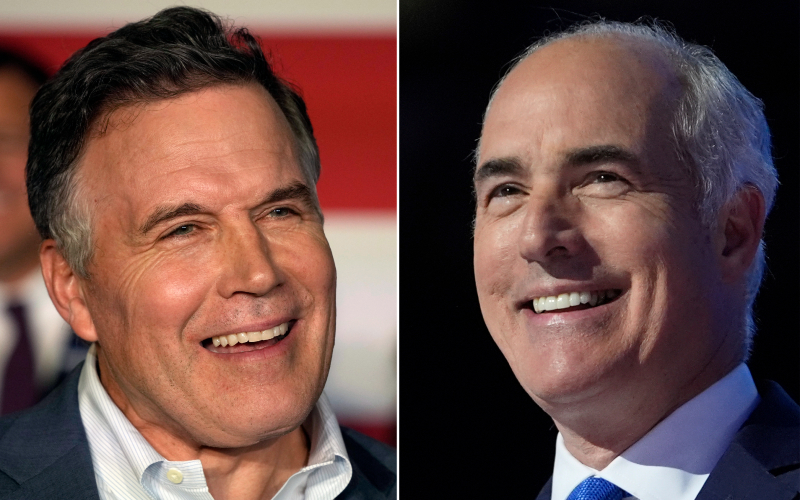While Donald Trump has long enjoyed support from the conservative evangelical community, he and his campaign allies also wooed smaller religious groups, far from the mainstream.
As it turned out, Trump won by decisive margins, but his campaign aggressively courted niche communities with the understanding that every vote could be critical, particularly in swing states.
Voter surveys such as exit polls, which canvass broad swaths of the electorate, aren’t able to gauge the impact of such microtargeting, but some backers say the effort was worth it.
Just one week before the election, Trump directed a post on the social-media platform X to Coptic Christians in the United States —- whose church has ancient roots in Egypt. He saluted their “Steadfast Faith in God, Perseverance through Centuries of Persecution and Love for this Great Country.”
“This was the first time seeing a major U.S. presidential candidate address the community in this manner,” said Mariam Wahba, a Coptic Christian and research analyst with the Foundation for Defense of Democracies, a Washington-based research institute. “It was really a profound moment.”
She said many Copts share the conservative social views of other Christian groups in the Republican constituency, and they may already have been Trump supporters. But the posting reinforced those bonds. Coptic bishops sent the president-elect congratulations after his victory and cited their “shared social and family values.”
Some Assyrian Christians — another faith group with Middle Eastern roots — similarly bonded with Trump.
Sam Darmo, a Phoenix real estate agent and co-founder of Assyrians for Trump, said many community members cited the economy, illegal immigration and other prominent voter issues. They echoed other conservative Christians' concerns, he said, on issues such as abortion, gender identity and religious expression in public. But he said Trump supported various Middle Eastern Christians recovering from the Islamic State group's oppressive rule.
Darmo also credited Massad Boulos, father-in-law to Trump’s daughter Tiffany, for mobilizing various Middle Eastern Christian groups, including Chaldean Catholics, and other voters, particularly in Michigan, such as Muslims.
“He brought all these minority groups together," he said. “We’re hoping to continue that relationship.”
Republicans also made an aggressive push for Amish voters, particularly in the swing state of Pennsylvania, where they are most numerous at about 92,000.
The GOP has made similar efforts in the past, even though researchers have found that less than 10% of them typically vote, due to their separatism from society. But Republicans used billboards, mailers, ads and door-to-door campaigner to drive turnout in Lancaster County, home base to the nation’s largest Amish settlement.
On Election Day, Amish voters Samuel Stoltzfus and his wife Lillian Stoltzfus said they were supporting Trump, citing their pro-life beliefs.
“We basically look at it as murder,” Stoltzfus, 31, said outside a polling center in the Lancaster County community of New Holland, where dozens of other members of the local Amish community voted.
Stolzfus added: “Make America great again and keep the moral values,” he said. “Let’s go back to the roots.”







